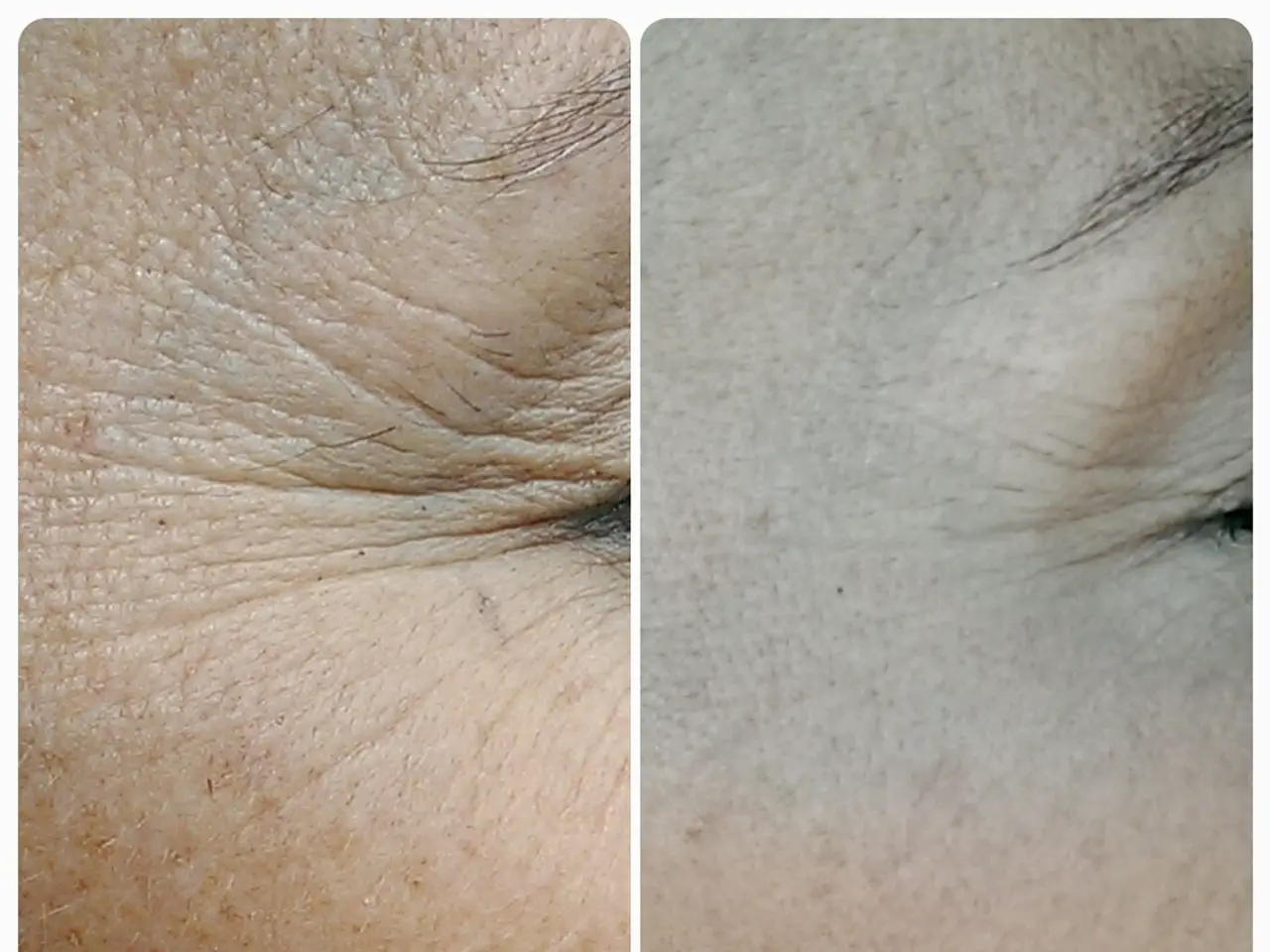Skin care advantages of non-clogging components
In the world of skincare, the term "noncomedogenic" is often thrown around, promising products that are less likely to clog pores and trigger acne. But what does it really mean, and can you trust this label?
A product labelled as noncomedogenic does not have the potential to clog pores in the skin. This term was popularised in a 1984 study on rabbits, which identified several substances, including isopropyl palmitate, lanolin, and coal tar derivatives, as comedogenic - substances that can cause blocked pores or comedones. However, it's important to note that being noncomedogenic does not necessarily mean a product is good at treating existing acne.
The term "noncomedogenic" is not regulated by any standard or official authority. This means manufacturers can label products as noncomedogenic without meeting specific criteria or testing requirements. As a result, the term is used freely and inconsistently across the industry.
To avoid ingredients that may clog pores or worsen acne, it is crucial to check product labels and ingredient lists carefully. Common pore-clogging ingredients to avoid in acne-prone skin include lanolin, coconut oil, beeswax, and mineral oils. Instead, look for lighter, noncomedogenic ingredients such as aloe vera, jojoba oil, and hyaluronic acid, which help hydrate and soothe skin without blocking pores.
When buying over-the-counter products for acne, it's essential to look for products that contain active ingredients that help treat and heal the acne, such as benzoyl peroxide, salicylic acid, retinol, and azelaic acid.
It's also important to remember that "oil-free" means that a product contains no oil of any kind. However, some oils, like jojoba oil, safflower oil, and almond oil, appear to have a low risk of causing comedones.
When it comes to acne-prone skin, lightweight, breathable makeup and skincare formulated specifically for oily or sensitive skin types is advisable. Products should also be oil-free, fragrance-free, and free from irritating chemicals to reduce redness, irritation, and breakouts.
However, it's essential to understand that "noncomedogenic" does not guarantee acne-free skin. Acne can be caused by a variety of factors, including hormonal imbalances, genetics, and underlying conditions such as polycystic ovary syndrome.
It's also worth noting that much of the information on comedogenic ingredients comes from animal studies that took place before 2013. More recent research suggests that other ingredients, such as petrolatum, mineral oil, oleic acid, cocoa butter, sodium lauryl sulphate, algae extracts, coconut oil, wheat germ oil, palm oil, and linseed oil, may also be comedogenic.
To ensure safety, always patch test new products on a less visible area of the skin, such as on the forearm, before applying to the face. Remember, no governing body regulates the use of the term "noncomedogenic," which means any company can use it without having any proof their product really is incapable of blocking pores.
In summary, while the term "noncomedogenic" can provide a starting point for choosing skincare products, it's important to focus on ingredient transparency and avoid well-known comedogenic ingredients while favoring gentle, non-irritating components that support acne-prone skin health. Additionally, it's crucial to understand that treating acne involves more than just choosing the right skincare products - it requires a holistic approach that includes a balanced diet, regular exercise, and stress management.
References:
- Ingredients to Avoid if You Have Acne-Prone Skin
- The Best Skincare Ingredients for Acne-Prone Skin
- Noncomedogenic Products: What They Are and Why They Matter
- How to Choose Skincare for Acne-Prone Skin
- The Truth About Noncomedogenic Skincare
- A noncomedogenic product can lessen the likelihood of clogged pores and acne, but it may not effectively treat existing acne.
- The term "noncomedogenic" is not officially regulated, allowing companies to use it inconsistently and without specific criteria or testing requirements.
- In acne-prone skin, it's essential to avoid pore-clogging ingredients such as lanolin, coconut oil, beeswax, and mineral oils, while seeking out lighter, noncomedogenic alternatives like aloe vera, jojoba oil, and hyaluronic acid.
- Acne can stem from multiple factors such as hormonal imbalances or underlying conditions, and choosing the right skincare products is only one part of an effective treatment plan, which includes a balanced diet, regular exercise, and stress management.




